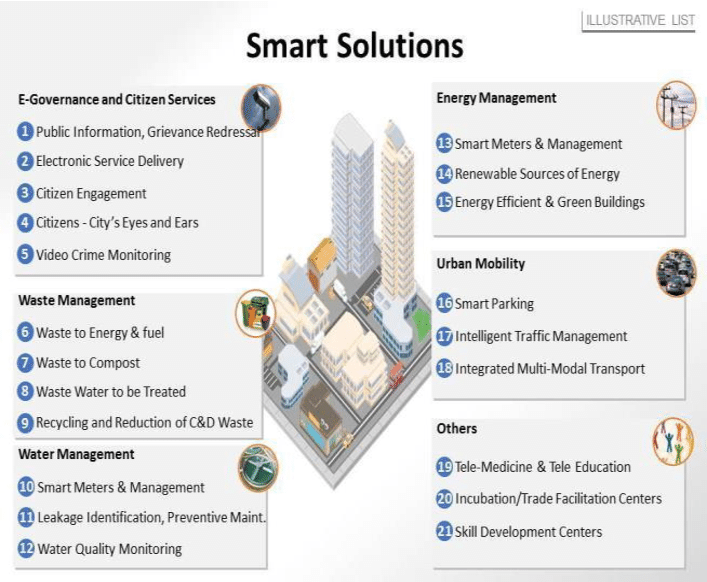Smart City Goal
The goal of a smart cities is to incorporate technology as an infrastructure to alleviate many of these complexities. Green energy, form of transportation, water and pollution management, universal identification { ID}, wireless internet systems,and promotion of local commerce and example of current smart city initiatives.
The current technology needs of smart cities are served by what is called the ” Internet of things”—IoT, a term used to describe an overall network of devices with embedded unique identifiers.
Example use cases for these devices include payment for items and traffic management. In Las-Vegas, usa, a traffic management systems known as SCOOT optimises green light time at traffic intersections by feeding back magnetometer and inductive loop data to a super computer, which can coordinate traffic lights across the city to improve traffic throughout. Barcelona,Spain saved 75million Euros of city funds and created 47,000 new jobs in the smart technology sector by implementing a network of fiber optics throughout the city, providing free high-speed WiFi that support the IoT and further linking to integration of smart water, lighting and parking management. The Netherland has tested the use of IoT-based infrastructure in Amsterdam, where traffic flow, energy usage and public safety are monitored and adjusted based on real-time-data. Meanwhile in major cities like Boston, and Baltimore in United states have deployed smart Trash-Cans that relay how full they are and determine the most efficient pick-up route for sanitation workers

SMART SOLUTION
AND SMART CITY
INFRASTRUCTURE
Solution List And Infrastructure

BENEFITS OF SMART CITY
Smart city technology can help cities operate more efficiently while improving services to citizen and businesses, among many other benefits. Here are the top 10 ways we see smart cities-and their stakeholders-benefiting. While the definition of a smart city is still evolving, a few things have become clear: Smart cities leverage information and communication technologies to enhance service levels, citizen well-being,sustainability, economic development.
Smart City Benefits
More effective, data-driven decision making
Enhanced Citizen and government engagement
Safer Communities
Reduced environmental footprint
Improved transportation
Increased digital equity
New economic development opportunities
Efficient Public utilities
Improved Infrastructure
Increased workforce engagement

